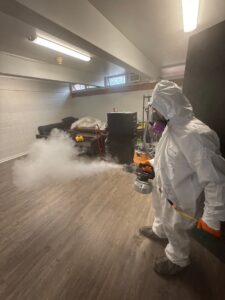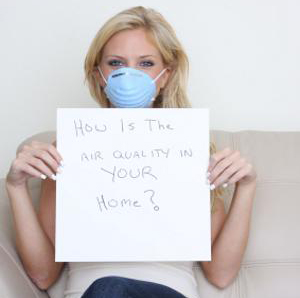Thermal Fogging: The Art Of Odor Control
Thermal fogging technology is another tool that can be used to restore your home or business after a fire, or to remediate odors from indoor tobacco use, pets, mold, fireplaces, meth lab cleanup and more. Unpleasant odors can be a major source of discomfort and can even pose health risks. Traditional odor control methods, such as air fresheners and cleaning products, often mask the smell temporarily or simply relocate the odor-causing particles. Thermal fogging offers a more effective and long-lasting solution for odor elimination.
What is Thermal Fogging?

The thermal fogging ‘mist’ is released in each room to completely neutralize any remaining odors and chemical contaminants. Thermal fogging is best performed by trained professionals who have the necessary equipment and expertise. The treated area should be evacuated during the fogging process and for a specified period afterward. Proper ventilation is essential after fogging to remove any residual fog and ensure air quality.
All closets, drawers, and cabinets should be left open during the procedure so that no odors are left behind. No open flames or sparks should be used during any odor-removing process, and all team members involved should be wearing protective gear and clothing.
Thermal fogging neutralizes odor molecules at their source, providing long-lasting odor control. The fog can reach hidden areas where odor-causing particles may be lurking, such as cracks, crevices, and porous surfaces. Thermal fogging can be used in various settings, including homes, businesses, vehicles, and outdoor spaces. Many fogging solutions also contain disinfectants, which can help kill bacteria, viruses, and other pathogens.
Thermal fogging is a powerful and effective tool for odor control especially when combined with other odor control techniques like ozone and encapsulation. The ability of thermal fogging to penetrate hard-to-reach areas and neutralize odor molecules at their source makes it a outstanding choice for eliminating stubborn odors and contaminants. Whether you’re dealing with smoke damage, mold infestation, or pet odors, thermal fogging can provide the long-lasting relief you need.



